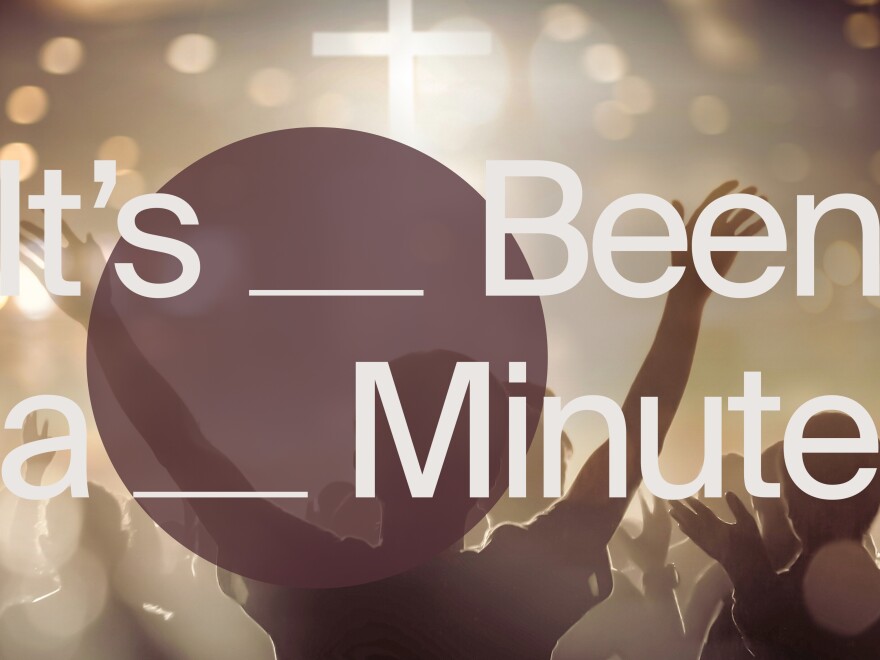Several Christian performers are simultaneously charting on the Billboard Hot 100 and remaining there for weeks at a time for the first time. Has Jesus Christ been discovered by the mainstream music industry?
Brittany speaks with Emerita, a professor at the University of Michigan-DearbornThe multi-million dollar mechanism that powers the Christian contemporary music genre is explained by Dr. Deborah Smith Pollard and Kelsey Kramer McGinnisto, a reporter for Christianity Today. They explore who is excluded and how your listening habits may be affected by this popular religious movement.
Episode Highlights:
What is Christian contemporary music (CCM) exactly?
MCGINNIS KELSEY KRAMER: I often discuss it as if it were an industry. Therefore, CCM is more of a media ecosystem than a genre, and it gained significant traction in the 1980s and 1990s, at least in the sense that it does today. Therefore, the style and qualities of this music are similar to those you might hear on popular radio. However, you wouldn’t have the offensive material. Therefore, consider abstaining from drugs, sex, and other such activities.
DEBORAH SMITH POLLARD: It’s true that some African Americans sing both gospel and CCM, as demonstrated by CeCe Winans and Dante Bowe at Maverick City Music and Elevation Worship.
Which CCM is now making waves in the charts?
MCGINNIS KRAMER: Barstool conversion rock is what I refer to it as. There is an intriguing interconnection between country [music], conservative politics, and masculinity. Jelly Roll, Shaboozey, Alex Warren, and a host of other mostly male musicians are also producing and making significant strides with this type of religiously oriented music.
What role do large megachurches like Bethel or Hillsong have in the worship music industry?
KRAMER MCGINNIS: That megachurch experience has influenced the format, style, and intended impact of a lot of CCM, or what I would call contemporary worship music, for the past 20 years or so. There are resources designed for churches that are essentially plug and play, which we refer to as multitracks or stems. Beneath this music, there is an entire industry dedicated to helping congregations replicate the experience of attending one of these megachurches as accurately as possible. I can purchase a few synth pieces even if I attend a church with 150 people on a Sunday morning and there aren’t 20 musicians performing. I can purchase a part for an electric guitar. I am able to purchase background vocals. I am able to purchase choir effect. I can buy lighting and other items to help it look more like what you would see in a Bethel recording.
How can we determine the type of music being played in these places of worship?
Christian Copyright Licensing International monitors how music is used in various churches using KRAMER MCGINNIS. And there’s a reason why the majority of the music there is in line with what white churches are playing, whereas Black churches there don’t use as much of it on a regular basis. As we watch all of this develop, it is influencing the Christian music industry and the styles of mainstream Christian music.
Does gospel music have the same financial potential as modern praise music?
SMITH POLLARD: I doubt it since, other from the lyrics to hymns or Negro spirituals, I’ve never attended a Black church where the lyrics were displayed on the screen. For this reason, I would estimate that 99.9% of them are exempt from paying CCLI for the use of that specific piece of music.
Why, in your opinion, is it crucial for non-Christians to comprehend the current CCM boom?
MCGINNIS KRAMER: Many of these musicians are men. Additionally, a lot of it has a hint of country taste. And what might be going on there, to the degree that those things are all connected? What could be causing this music to resonate? What does it tell us about the current quest for faith, conservative politics, and masculinity? The current administration has made it clear that it wants to combat anti-Christian prejudice worldwide. And it’s difficult to avoid rejoicing when Christian music plays a significant role on “American Idol” and a certain group of evangelicals feels that this is their time.
Copyright 2025 NPR






